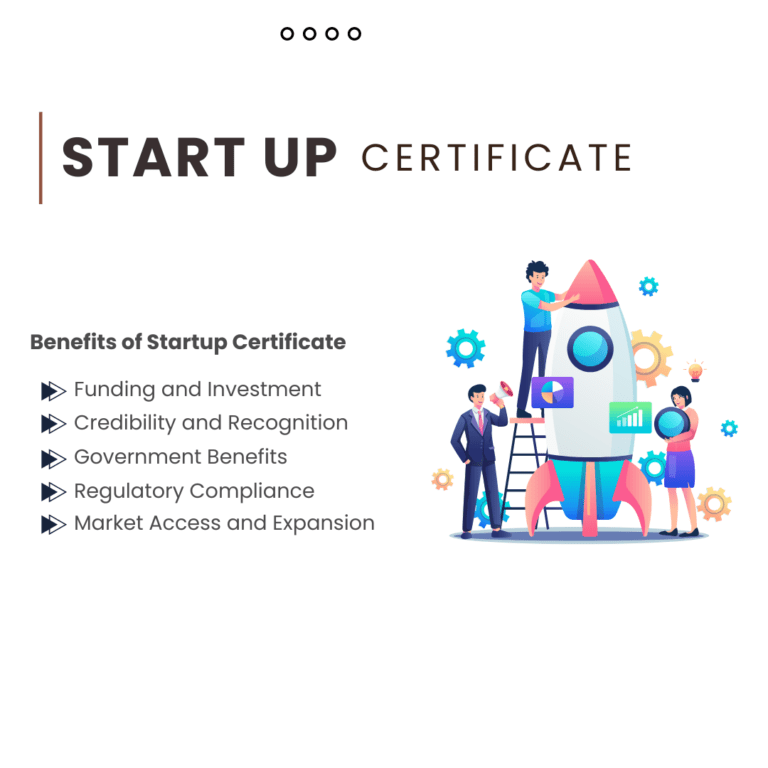Startup Certifications
- Home
- Startup Certifications
The entrepreneurial spirit burns bright in many, igniting a passion to turn ideas into thriving realities. But the journey from conception to a successful venture can be daunting, riddled with uncertainties, and demanding a unique blend of skills and knowledge. This is where Startup Certification emerges as a powerful tool, empowering aspiring entrepreneurs with the essential building blocks for a strong foundation.
Imagine a roadmap that equips you with the necessary insights into navigating the intricate startup ecosystem. A map that illuminates the legal, financial, and operational aspects of launching and scaling your venture. Startup Certification does just that, offering a comprehensive and structured learning experience designed by industry experts. It’s not just a piece of paper; it’s a transformative journey that empowers you with the confidence and competence to navigate the exciting yet challenging world of startups.

Benefits of Startup Certification
Achieving startup certification can catapult a fledgling business into the spotlight, offering a plethora of advantages that accelerate growth and sustainability. Firstly, obtaining certification enhances credibility and instills trust among stakeholders, including investors, partners, and customers. With a recognized stamp of approval, startups can differentiate themselves in a crowded market, bolstering their reputation and attracting potential investors.
Moreover, startup certification opens doors to a wide array of funding opportunities. Many investors and accelerators prioritize certified startups due to their proven commitment to quality and compliance. This increased access to capital empowers entrepreneurs to fuel their growth initiatives, expand their operations, and scale their businesses at a rapid pace.
Furthermore, startup certification facilitates networking and collaboration within the entrepreneurial ecosystem. Certified startups gain access to exclusive events, mentorship programs, and industry networks, fostering invaluable connections that can spark innovation and propel their ventures forward. These collaborative opportunities provide a platform for knowledge sharing, strategic partnerships, and business development, amplifying the impact of certified startups in their respective industries.
Additionally, startup certification often comes bundled with tailored support services and resources designed to address the specific needs of early-stage ventures. From legal guidance and regulatory compliance assistance to marketing support and technical expertise, certified startups benefit from a comprehensive ecosystem of support that accelerates their growth trajectory.
In essence, startup certification serves as a catalyst for success, empowering entrepreneurs to navigate the challenges of the startup journey with confidence and resilience. By unlocking access to funding, enhancing credibility, and fostering collaboration, startup certification paves the way for emerging businesses to thrive in today’s competitive landscape.
Types of Startup Certifications
Startup certificates play a crucial role in the entrepreneurial ecosystem, serving as stamps of approval, facilitating access to resources, and signaling credibility to investors and stakeholders. These certificates come in various forms, each tailored to meet specific needs and stages of a startup’s journey. Here are some types:
Incorporation Certificate: This foundational document marks the official establishment of a startup as a legal entity. It typically includes details such as the company name, registration number, date of incorporation, and the jurisdiction under which it operates. This certificate is essential for opening a bank account, entering into contracts, and conducting business operations.
Tax Registration Certificate: Issued by the relevant tax authorities, this certificate signifies that the startup is registered for taxation purposes. It includes details such as the tax identification number (TIN) or employer identification number (EIN) depending on the jurisdiction. Having this certificate ensures compliance with tax regulations and enables the startup to file tax returns and avail of tax benefits.
Intellectual Property (IP) Certificate: Startups often rely on innovative ideas, inventions, and creative works as their competitive advantage. IP certificates, such as patents, trademarks, and copyrights, protect these intangible assets. They provide legal recognition and exclusive rights to the startup, preventing others from using, selling, or reproducing their intellectual property without permission.
ISO Certification: For startups involved in manufacturing or providing certain services, obtaining ISO certification demonstrates their commitment to quality management, environmental sustainability, or information security. These internationally recognized standards enhance credibility, improve processes, and open doors to new business opportunities, especially in industries where adherence to standards is paramount.
Funding Certification: Startups often seek funding from investors, accelerators, or government grants to fuel their growth. Certificates such as “Approved for Funding” or “Grant Recipient” validate the startup’s viability and potential, making it more attractive to investors and increasing its chances of securing financial support.
Social Impact Certification: Startups focused on social or environmental impact may obtain certifications such as B Corp or Benefit Corporation status. These certifications assess the startup’s performance against rigorous standards of social and environmental responsibility, signaling its commitment to creating positive change alongside profit generation.
In conclusion, startup certificates are indispensable assets that not only validate a venture’s legitimacy but also serve as powerful instruments for growth and recognition. Whether it’s securing legal standing through incorporation certificates, safeguarding intellectual property with IP certifications, or demonstrating a commitment to quality with ISO standards, these certificates bolster confidence among stakeholders and pave the way for access to resources and opportunities. By obtaining and leveraging the right certifications, startups can navigate challenges, attract investment, and solidify their position in the dynamic entrepreneurial landscape, ultimately laying the groundwork for long-term success and impact.
